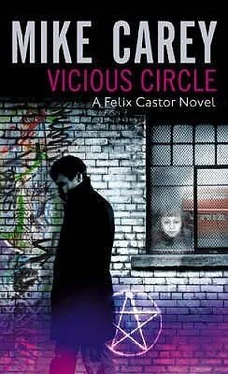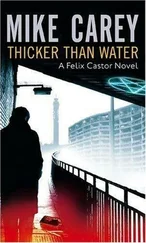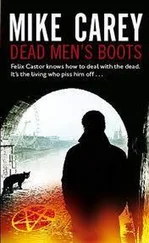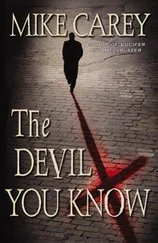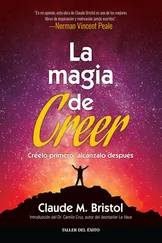‘Hello?’
‘It’s me,’ I said. ‘What’s the deal?’
‘Oh, hello, Felix. Thanks for getting back to me.’
‘Well, I’m still your sensei, right? Can’t leave you running around on your own out there.’
This was one of the more ridiculous aspects of our relationship. Juliet – her real name is Ajulutsikael – had originally been raised from Hell to kill and devour me because I was asking awkward questions that a pimp named Damjohn didn’t want answered. But then she decided that living on Earth was preferable to going home to the arse-end of Hell, so she bailed out on the job and let me live – on condition that I taught her the exorcism game. So I found myself giving a work-experience placement and tax advice to an entity several thousands of years old, who if she ever got the munchies during the working day could suck my soul out through any bodily orifice or appurtenance she chose. It had been interesting. Many years from now I might even get an unbroken night’s sleep again.
‘So is this work, or what is it?’ I went on, pushing those memories firmly back down into the fetid oubliette of my subconscious.
‘I have a commission,’ she said, sidestepping the question. ‘At a church in West London. Saint Michael’s, on Du Cane Road – it’s right opposite Wormwood Scrubs.’
‘And—?’
‘And I’d like a second opinion on something.’
‘Are you being deliberately oblique and mysterious?’
‘Yes.’
‘Fair enough. I’ll come on over when I’m done here. Is around six okay?’
‘Perfect. Thank you, Felix. It’s been a long time. I look forward to seeing you.’
‘Yeah,’ I said. ‘Likewise. Catch you later, Jules.’
I hung up. Damn if I wasn’t sweating. Just her voice, and I was sweating.
I had to get my mind onto another track. Remembering Grambas’s napkin I took it out of my pocket: the numbers were slightly smeared by raindrops from when he’d passed it to me in the yard, but they were still legible. The first digits were 07968, so it was obviously a mobile.
I dialled.
‘Hello?’ A man’s voice, hesitant and over-careful, as if he expected bad news.
‘This is Felix Castor,’ I said. ‘You called by my office this morning.’
‘Mister Castor!’ The sudden excitement added a whole new palette of colours to the guy’s voice. I wish I could have that effect on some of the women I meet. ‘Thank you for getting back to us. Thanks so much. Are you at your office now?’
‘Yes, I am. If you’d like to arrange an appointment—’
‘We’ll be right there. I’m sorry, I mean can we come and see you now? We’re very close by. Would that be convenient?’
I considered a face-saving lie: it’s never a great idea to let a client see that you’re instantly available, because they draw all sorts of inferences about your case load. On the other hand, it didn’t sound like I’d be having to work too hard to sell myself here.
So: ‘Sure,’ I said. ‘Come on over.’
They introduced themselves as Melanie and Stephen Torrington – Mel and Steve. Nice people. I could see why Grambas’s fiancée, Maya, had instinctively sympathised. They both looked to be in their late thirties, well dressed and well groomed, affluent but not making a whole big thing out of it. Actually, there might have been one other thing that triggered the sympathy, and I was surprised that Grambas hadn’t mentioned it. The whole of the left side of Melanie’s face was a purple mass of bruising, her eye swollen half out of its socket.
Stephen was tall and blond with a rich tan that could even have been natural, although he sure as hell hadn’t gotten it in Harlesden: his slate-grey eyes could have given his face a hard cast, but the expression – self-effacing, open, slightly nervous – took a lot of the edge off it. He wore a nicely cut dark-grey suit – too nice, and with too good a hang, to have come off the rack – and a sky-blue tie with a lacquered tiepin in the shape of a judge’s gavel. He also had a black plastic bin-liner full of something or other, clutched tightly in both hands so that he had to put it down to shake my hand. The bin-liner didn’t exactly go with the ensemble, but I figured we’d get to it in due course. And the handshake, which I’d hoped might give me some measure of the man underneath the tan, told me almost nothing. Sometimes whatever sense it is that lets me spy on the dead lets me overhear the emotions of the living, too, through skin-to-skin contact. From Stephen Torrington I got nothing but a burning thread of determination that overrode everything else.
Melanie was also blonde, and also tall – a match made in Heaven, obviously, or at least at some very exclusive country club on the way to Heaven – and judging from the intact side, she had a beautifully sculpted face with aristocratic cheekbones and vivid blue eyes dusted with flecks of a lighter shade, like highlights. The ugly, swollen tissue on the left side sort of ruined the effect, though. She looked as though she’d been in a bad car accident – or as though someone had bounced her off a wall.
Like Steve, she was immaculately dressed and exuded wealth and status. Like him, she seemed to be locked inside a sarcophagus of dense emotion that I felt would have rung aloud if I’d tapped it with a finger. She kept her arms rigidly folded, hugging herself as if for comfort. The handshake here revealed complex, overlapping skeins of positive and negative affect: fear, pride, shame, ferocious love, more fear – a cat’s cradle of emotions that shouldn’t make it into each other’s company.
Steve said he was a solicitor for a family firm in Stoke Newington – not quite a partner, but almost there. Melanie was a barrister, which was how they’d met. They’d been married for eighteen years. This paltry small talk was as stiff and awkward as if I’d been asking them where and how they’d contracted syphilis.
Things were going to be awkward in other ways too: with three people in it, my office was already feeling a little crowded. Add to that the fact that the milk I’d left in the portable fridge had soured, turned green and mutated into a new life form since the last time I was here, and I’d had to hide the fungus-sprouting mugs behind the filing cabinet, and my professional façade was hanging even more askew than it usually does: once I’d got them sitting down I couldn’t even offer them coffee.
Straight down to business, then.
‘What can I do for you?’ I asked.
‘Our daughter,’ Mel mumbled, her voice slurred and thickened slightly by the swelling on the left side of her jaw. Having said that, she seemed to run out of words.
‘Abbie.’ Steve took up the account. ‘Abigail. She’s gone missing.’ Where Mel’s voice had been carefully, rigidly flat, his was so full of formless emotion it almost sounded strangled. He fished in his wallet and took out something small and rectangular, which he handed to me. I took it and flipped it over so it was right side up for me: it was a photograph, passport-sized, of a girl. About thirteen or fourteen years old, judging by face and build; long, straight blonde hair of the kind that gets called ‘flyaway’ on shampoo bottles; an awkward, apologetic smile. Around her neck, a gold pendant in the shape of a heart. There was something in her eyes . . . something a little sad and haunted. Or maybe there wasn’t. Maybe my memory inserted that nuance, in the light of what happened afterwards.
‘I’m really sorry to hear that,’ I said, meaning it about as much as anyone does in those circumstances. These were just strangers, after all, and Abigail was just a name. ‘How long ago?’
That’s a stupid habit I’ve got: when I can’t think of anything else to say, I start in with the questions like a doctor looking to make a diagnosis.
Читать дальше
